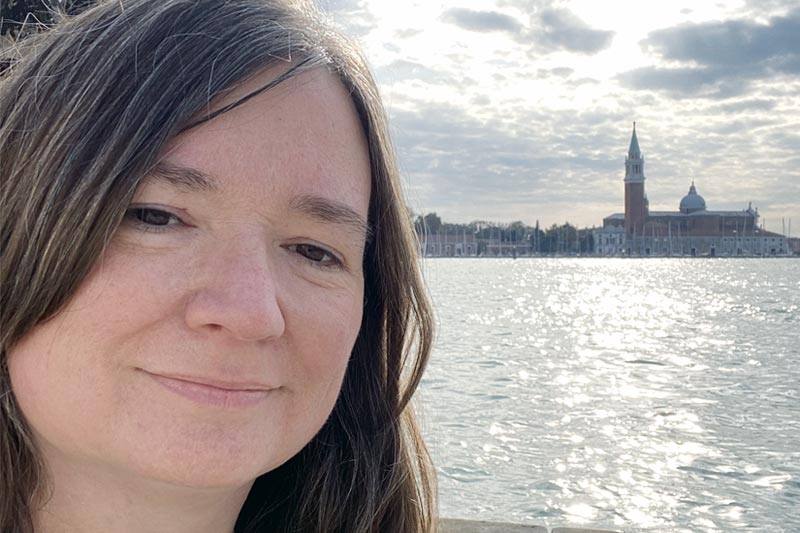Identity-Based Resources for Study Abroad: Wings or Nontraditional Students
Dora Fromer, ’23, Fall 2021 Semester in Italy program
Nontraditional students may have different responsibilities or considerations than traditional-aged students, including obligations related to family or profession. Wings students at Meredith have consistently had success studying abroad, and taking time to understand program options can help nontraditional students have fulfilling study abroad experiences.

Maddy Ostrowski, ’24, summer 2023 in Denmark
For Wings students who may have work, home, or family commitments, program length can be an important consideration. Meredith Abroad and affiliate program lengths can vary from an entire semester to just a couple of weeks. Researching what program length will work for you, your academic and experiential goals, and your personal commitments can help narrow down program options when preparing to apply for study abroad.
For some nontraditional students, studying abroad may mean missing work. If this is the case for you, connecting with OIP and Office of Financial Assistance and applying for scholarships can help ease some financial burden.
Nontraditional students may bring additional life experiences to study abroad compared to traditional-aged college students. These experiences often allow for enhanced cultural exploration and may further enrich not only their own study abroad experience but the experiences of their fellow participants. Understanding how study abroad can fit into your pre-existing set of responsibilities during the inquiry, advising, and application phases and before departure can help facilitate a valuable experience.
Questions to Consider
- What resources does my host country have for nontraditional students?
- Do I have responsibilities at work or home that may affect study abroad program length?
- What types of housing accommodations will make me most comfortable? Which programs or host countries offer these options?
- Have I connected with the OIP and program faculty to discuss my anticipated needs while abroad?
- What opportunities will there be to connect with other program participants or people from the host country? Will there be other adult students on this program?
- What are the cultural connotations of adult students in my host country?
Resources
-
- Meredith College Study Abroad Returns to Italy [VIDEO] | Meredith College, featuring Wings student Dora Fromer, ’23
- Must Ask Questions for Adult Students Traveling Abroad | Diversity Abroad
- How Does a First-Generation, Non-Traditional Student Study Abroad? | Jacqueline Paul, IFSA-Butler
- Study Abroad for Adults—Yes, It’s a Real Thing | GoAbroad
- Nontraditional Students Abroad | The University of Michigan
- Studying Abroad for the Non-Traditional College Student | CEA Study Abroad


